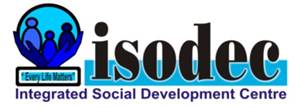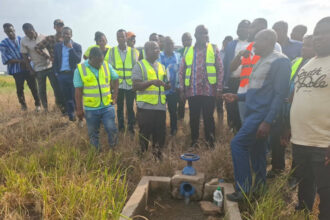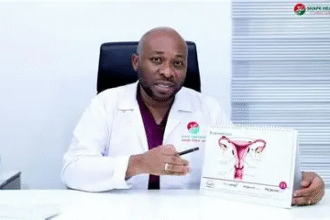The Ghana Integrity Initiative (GII) has outdoored a Corruption Risk Assessment Report (CRA) on the Government of Ghana’s COVID-19 interventions.
The Report, which was launched via Zoom in February this year was meant to evaluate the susceptibility of the Government’s COVID-19 socio-economic interventions to corruption and to provide appropriate policy recommendations to relevant state agencies on ensuring the integrity of social interventions.
The Government of Ghana introduced several interventions during the initial phase of the COVID-19 pandemic. Key amongst which are the setting up of a COVID-19 Trust Fund, the Coronavirus Alleviation Programme (CAP) and the Ghana CARES “Obaatanpa” Programme. Due to the urgent nature of the response, government put aside many of the existing laws to enable it to quickly implement measures to mitigate the negative impact of the pandemic on the people. Whiles government put in various policy measures to alleviate the impact of COVID-19 on the nation, very little attention was paid to the robustness of the interventions to the transparency and accountability test.
The Report found that communication on the establishment of the COVID 19-related funds reached 85.52% of the populace during the pandemic, with television and radio being the most effective channels of communication.
It also established that there was inadequate transparency with regards to the procurement processes related to COVID-19 interventions among the populace. About 67.90% of the general populace and targeted institutions , particularly Public sector institutions that were directly involved in the implementation of the interventions were not aware of any arrangements in place to ensure compliance with the Procurement Act, 2003 (ACT 663). This is further compounded by the inadequate publication and accessibility of procurement contracts by the public sector agencies responsible.
The Report added, “No readily available audit report of the COVID-19 interventions has been conducted or published for public accessibility; although Article 187 (2-5) of the Constitution and Section 21(2)(3) of the COVID-19 Trust Fund supports the conduct of an audit after the financial year.”
It indicated that the overall governance risk is medium, with a high risk in integrity mechanisms, indicating that rules, regulations and standards have not been adequately complied with.
The CRA further raises red flags in the areas of integrity, accountability, and participation. Problems are mainly related to issues of accountability, the application of rules and procedures, and low levels of participation of independent governance and accountability institutions and beneficiaries in decision-making around public procurement.
High risk areas, according to the Report, are predominantly around procurement of goods and services for the various interventions
It added. “There is a risk of corruption in the relationship between Central Government and suppliers who were mainly sole-sourced. This risk derives from the absence of appropriate mechanisms to regulate these relationships or the failure to consistently apply such mechanisms where they exist.”
Based on the findings, the Report recommended to the government of Ghana to ensure full compliance of sections 79 and 80 of the Public Financial Management Act (PFMA) and Public Procurement Act to safeguard the public funds and deliver value for money.
It also suggested to the government enforce Section (92) of the PPA Act which speaks to contraventions and penalties relating to procurement in instances of violations especially under emergency situations, to serve as a deterrent to public officers who may want to take advantage of the system.
It further requested of government to Roll out a comprehensive communication effort through community radio and television to reach people in the local communities, using the appropriate languages, while improving upon the sharing of information regarding the sources of funding and expenditures related to the COVID-19 pandemic.
During the launch, The Executive Director of GII, Mrs Linda Ofori-Kwafo welcomed participants and explained that the purpose of the gathering was to officially launch GII’s Corruption Risk Assessment report on governments COVID-19 interventions. She acknowledged the support of the Centre for International Private Enterprise (CIPE) particularly Ms. Carmen Stanila, who is a Senior Consultant at CIPE, who supported GII during the implementation of the project.
She was optimistic that the recommendations would be considered for implementation to serve as best practice in similar situations.
The launch brought together over 60 participants, of whom fourteen were women cutting across all sectors, public, private, civil society and the media. Ghana Health Service, Ghana Education Service, Ministry of Health, Covid-19 Trust Fund, Ghana Revenue Authority, and Public Procurement Authority were among the institutions that took part.
A strong case was made by participants during the launch for GII to submit the report to the Office of the Special Prosecutor for possible investigations into some of the findings.
By: Mohammed Suleman/Publicagendagh.com














